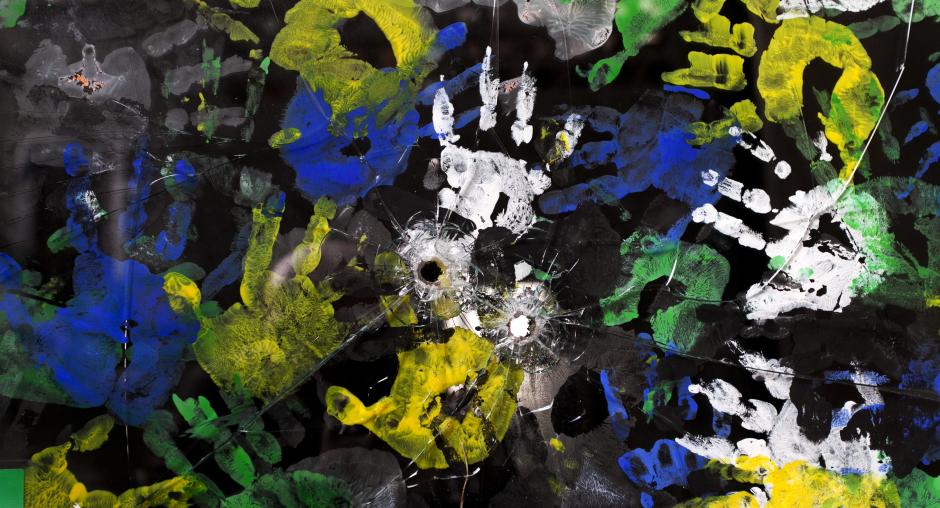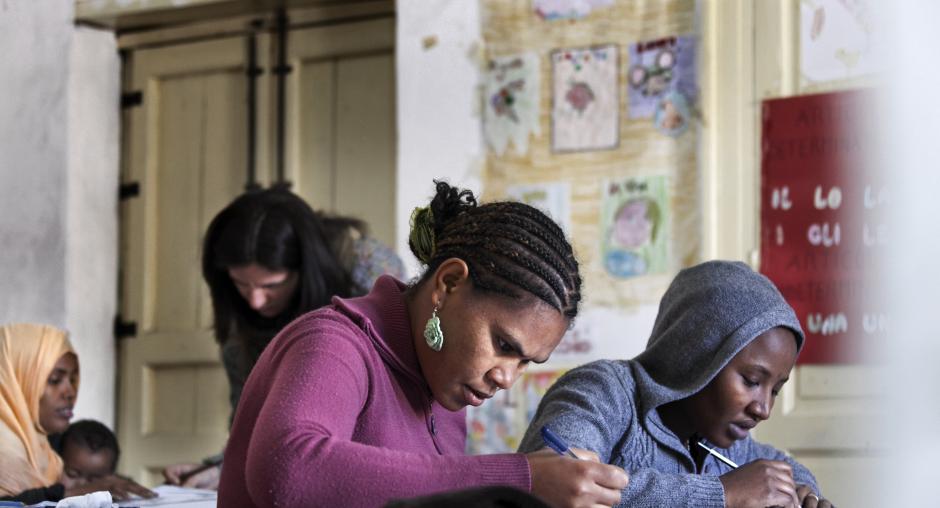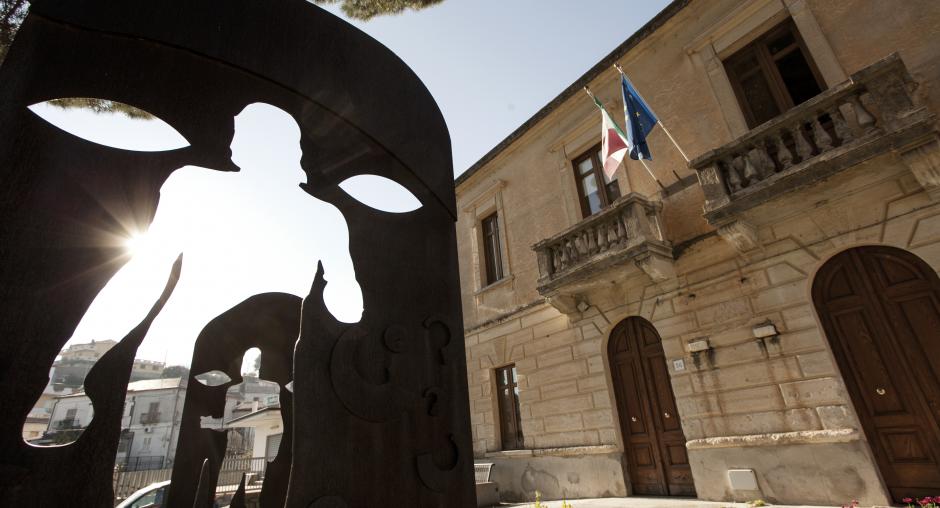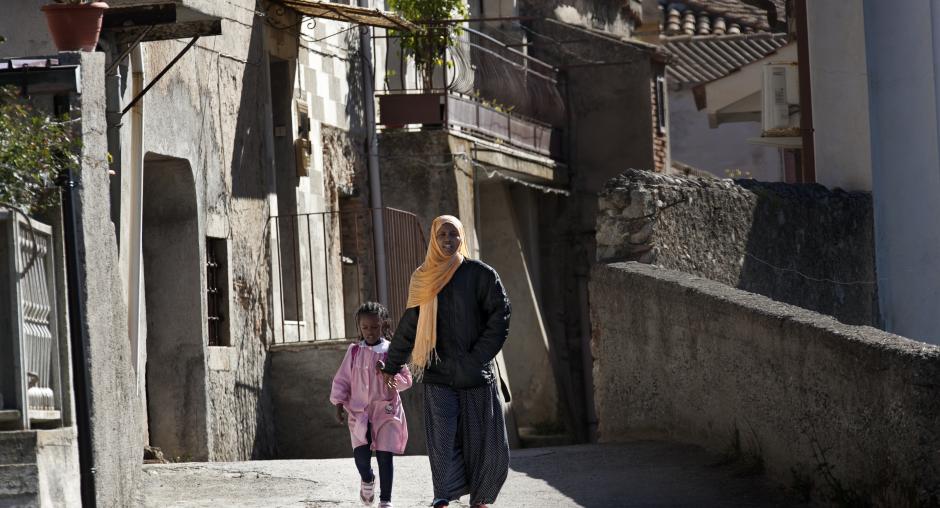A Global Village
“The only really valuable thing is intuition,” Albert Einstein said.
Intuition is at the core of this story, which takes place in Riace, southern Italy. Riace is a small medieval village on the Ionian coast of Calabria, mostly known for the discovery in 1972 of two antique bronze statues that were named after it. Domenico Lucano has been Mayor of Riace since 2004. It is his intuition that has radically changed the village.
Mr. Lucano’s idea came to him in response to two phenomena: first, the increasing number of migrants arriving on Italian shores; and second, the dramatic depopulation of his village in the past decades. By the 1990’s, only a couple of hundred inhabitants remained in Riace, and their average age could lead one to expect that the village might soon be completely abandoned. In the arrival of the migrants, Mr. Lucano saw an opportunity to rejuvenate and revive his village.
Today, some 2,800 people from 20 different countries live in Riace and the village is recognized worldwide as a model for the integration of migrants and asylum seekers. Lucano’s policies have also proven effective in terms of urban renewal and socio-economic development.
In 2016, after 13 years in office, Domenico Lucano was included by Fortune in the list of the 50 most influential leaders in the world. Pope Francis congratulated him in person for his policies and he was featured in Wim Wenders’ documentary “The Voice”. The German filmmaker believed that the walls falling in Riace was more important than the fall of the Berlin Wall.
How could an intuition, which Mr. Lucano describes as the vision of a “utopia of normality”, have such an impact? It all started on 1 July 1988, when 300 Kurds arrived on the shores of Riace. Mr. Lucano founded the association Città Futura (“city of the future”) and began integrating these migrants into the community (using abandoned spaces and focusing on providing jobs and opportunities to learn Italian. In 2006, the village received funds from the regional government and launched a programme for urban renewal. Abandoned houses and shops were renovated for usage by the newcomers and green spaces were created. Also, waste recycling, which until then was not common practice in many parts of Southern Italy, was put into place.
The national government accords 30 to 35 Euros a day per migrant to municipal authorities, who then provide them with housing, legal assistance, basic education and a job. Thanks to a number of other social subsidies and contributions, an economy of artisanal workshops has begun to flourish in Riace.
This approach has proven to be beneficial for both the hosting community and the newcomers. It has also come at a significantly lower economic cost to Italian taxpayers than housing migrants in collective shelters. In fact, managing public collective shelters costs the government 70 Euro a day per migrant, and in those centres people often do not live in acceptable conditions. Furthermore, the “Riace way” means that migrants are integrated into a social fabric that needs them, and in which they can realize their potential and positively contribute to their new community. “It’s an approach,” says the Mayor, “that has nothing to do with politics,” and that has been embraced by the local population. After initial hesitations, the community has in fact become an essential part of the integration process.As for the newcomers, many decide to stay on even after the assistance programme has ended for them upon the successful conclusion of their application for refugee status or a visa. Baharam, for example, arrived in 1998 and today is an Italian citizen and carpenter. He says he feels “at home”, also because the hills of Riace remind him of Kurdistan.
Issa, who has lived in Calabria for more than ten years after leaving Afghanistan, makes ceramics and helps support his family in his country of origin.
Sami escaped from the civil war in Eritrea and spent five years of his life in a prison in Libya. He has not regained his smile, but he defines himself as a free man now.
Daniel from Ghana works in a co-operative dealing with waste recycling and is the father of two children.
Aregu, an Eritrean political refugee, works as a glassmaker and managed to have her son re-join her in Italy after 4 years of being separated. And there are others who cannot find a job but manage to stay thanks to the generosity of this community.
Among locals, many have found a sort of redemption in these community integration efforts. For example, Biase is a silent and introverted man who talks mostly with his donkeys. After years of exploitation and marginalization, he now leads the door-to-door recyclable waste collection. Maria Grazia teaches in the only school of the village, which would have closed down without the arrival of foreign children.
And yet, Riace is not a perfect model. The surrounding area, like most of southern Italy, faces serious and complex challenges, from high unemployment rates and economic stagnation to organized crime. For these reasons, many migrants leave Riace after receiving residence permits and other documents to head for the more prosperous regions of northern Italy and Europe.
Riace was founded in the sixteenth century to repulse invaders coming from the sea. Today, that very sea has made a global village out of an abandoned town. This village, whose patron saints are two doctors of Arab origin, Cosma and Maniano, has been given a new lease on life.
Small centres like Riace have structural limits, due mostly to their size. Yet this example was seminal in creating a national network for the reception of newcomers. The network consists of more than 1,000 local authorities of small towns, and has so far helped more than 25,000 people, proving that the “Riace model” can be reproduced. However, In order to apply it to urban and industrialized areas in Europe, something more will be needed. Another intuition.
Written by Lorenzo Foti
Lorenzo Foti is an Italian freelance journalist and media relations expert working in various fields, such as culture, innovation and social issues.
Welcome to Security Community
Security Community is the OSCE’s online space for expert analysis and personal perspectives on security issues.
The views expressed in the articles are those of the authors and do not necessarily reflect the official position of the OSCE and its participating States.












